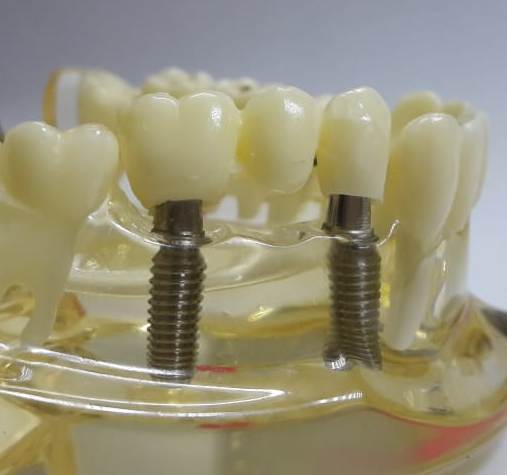
Dental Crowns
Introduction: Why Choosing the Right Dental Crown Matters
Dental crowns are widely used in dentistry for various reasons—restoring heavily damaged or fractured teeth, protecting a tooth after root canal treatment, supporting a dental bridge, or covering a dental implant. However, many patients struggle with questions like:
- Which type of crown is best for me?
- What are the latest materials available?
- Is a metal crown better than a ceramic one?
- How much do different crowns cost in India?
- Do I automatically get the best crown if I get an implant?
Misinformation is common. Some patients still ask for gold crowns, unaware that they are outdated and prone to damage. Others believe metal crowns are the only strong option for front teeth, not realizing there are thinner, stronger, and more esthetic choices. Additionally, many patients think that getting an implant includes the crown, but they don’t realize they need to choose the type of crown separately.
In this detailed guide, we will cover everything about dental crowns—their types, materials, indications, advantages, limitations, latest advancements, and costs—so you can make an informed decision before your dental procedure.
What is a Dental Crown?
A dental crown is a cap placed over a tooth or implant to restore its shape, strength, function, and appearance. It can be made from various materials, each offering different benefits.
Indications for Dental Crowns
- Restoring a tooth with extensive decay or fracture
- Protecting a tooth after root canal treatment
- Replacing a missing tooth as part of a bridge
- Covering a dental implant
- Improving the appearance of discoloured or misshapen teeth
Types of Dental Crowns Based on Material
Porcelain-Fused-to-Metal (PFM) Crowns
Features:
- A metal base covered with a porcelain layer for aesthetics
- Provides strength with a natural look
Limitations:
- Porcelain can chip over time
- Metal margin may become visible as gums recede
Cost in India: ₹4,000–₹10,000 ($50–$120)
Zirconia Crowns (Monolithic & Layered Zirconia)
Features:
- Highly durable and resistant to fractures
- Looks natural with excellent aesthetics
- Biocompatible, causing no allergic reactions
Limitations:
- More expensive than metal or PFM crowns
- Requires precise adjustment due to hardness
Cost in India: ₹8,000–₹20,000 ($100–$250)
E-Max (Lithium Disilicate) Crowns
Features:
- Best aesthetics; highly translucent like natural teeth
- Ideal for front teeth
Limitations:
- Not as strong as zirconia for heavy bite forces
- More expensive
Cost in India: ₹10,000–₹25,000 ($120–$300)
Metal Crowns (Gold, Silver, and Base Metal Alloys)
Features:
- Extremely durable and resistant to wear
Limitations:
- Poor aesthetics—not suitable for front teeth
- Gold crowns are outdated, weak, and prone to perforation
- May cause metal allergies in some patients
Cost in India: ₹5,000–₹15,000 ($60–$180)
Resin Crowns (Acrylic or Composite)
Features:
- Affordable option
- Used temporarily while waiting for a permanent crown
Limitations:
- Not very durable—wears down easily
- Can discolor over time
Cost in India: ₹1,500–₹5,000 ($20–$60)
Factors to Consider When Choosing a Dental Crown
- Strength and durability
- Aesthetics and natural appearance
- Cost and budget
- Biocompatibility and risk of allergies
- Location in the mouth (front or back teeth)
- Personal preferences and lifestyle
Dental Crowns for Implants: What You Need to Know
Many patients assume that getting an implant includes the crown, but the type of crown must still be selected separately.
- Zirconia Crowns for Implants: Best for durability
- E-Max Crowns for Implants: Best for front teeth aesthetics
- PFM Crowns for Implants: A mid-range option with strength and decent aesthetics
Your dentist will help choose the right crown based on your bite force, aesthetics, and budget.
Latest Advancements in Dental Crowns
- CAD/CAM technology for precise and same-day crowns
- 3D-printed crowns for better customization
- High-translucency zirconia for improved aesthetics
- Bioactive crowns that promote better gum health
Common Misconceptions About Dental Crowns
Gold crowns were used historically, but they are weak, easily damaged, and no longer a top choice.
Many people believe metal crowns are stronger than ceramic crowns for front teeth, but modern zirconia crowns are thinner, stronger, and look natural.
Some assume that an implant automatically includes the best crown option, but the implant is separate from the crown, and patients need to choose a suitable type.
Conclusion: Choose the Right Crown for Long-Term Success
Understanding the types of dental crowns available helps you make the best decision for your oral health. Factors like strength, aesthetics, budget, and longevity play a key role. Consult your dentist, but with this knowledge, you will have clarity in selecting the best crown for your needs.
FAQs
Which crown is best for front teeth?
E-Max or Layered Zirconia for the most natural look.
Which crown is the strongest?
Monolithic Zirconia is the most durable.
How long do dental crowns last?
With proper care, crowns last 10–15 years, sometimes longer.
Are metal crowns better than ceramic crowns?
No. Zirconia crowns are stronger, more biocompatible, and more aesthetic than metal.
Is a gold crown a good option today?
No, gold crowns are outdated, weak, and prone to perforation.
What is the cost of dental crowns in India?
Costs vary from ₹1,500 ($20) for resin to ₹25,000 ($300) for high-end zirconia or E-Max crowns.

